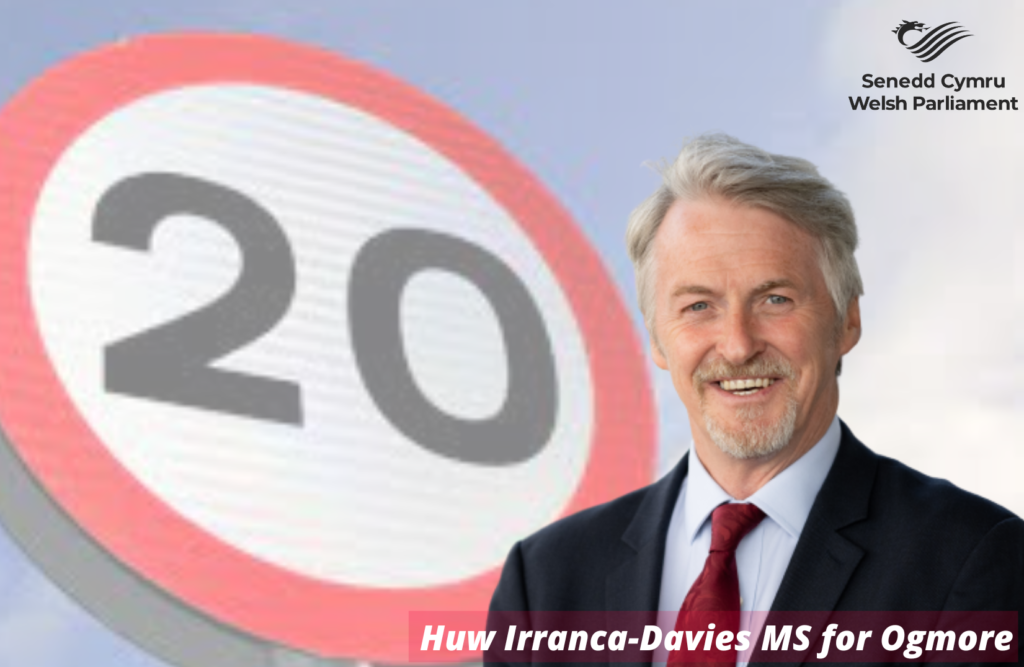Huw Irranca-Davies: Why we need Safer Streets in Ogmore

Written by Huw Irranca-Davies
After many years of campaigning, evidence-gathering – and some heated debate too – legislation to lower the default national speed limit on residential roads and busy pedestrian streets from 30mph to 20mph has now been approved by the Senedd. Wales will lead the way once again, creating safer streets and residential areas which are more liveable and enjoyable spaces for all.
This is a major step towards safer, calmer streets and communities whilst also helping towards us becoming an ‘Active Travel’ nation by giving people more confidence to cycle and walk – rather than automatically jumping in the car.
The changes will affect ‘restricted roads’ which are usually located in residential and built-up areas of high pedestrian activity. Welsh Government will also work with local and highway authorities to identify roads which could stay at 30mph as exceptions to the new default of 20mph.
As Chair of the Senedd Cross Party Groups on the Active Travel Act and the Clean Air Act too, I was pleased to support this major change. So many constituents have told me how their residential streets have become less safe as the years have gone by. But more than this, Wales is not just facing a climate-change emergency. We face public health, air pollution and road safety emergencies too. Slowing traffic in built-up areas will help on all these fronts.
The new slower speed limits are currently being trialled in eight communities across Wales and will be rolled out nationally in September 2023. The move is supported by Public Health Wales, Living Streets Cymru, Sustrans Cymru, Cycling UK Cymru, Twenty is Plenty campaigners and others who also point to evidence showing the significant decline in fatalities and serious incidents in residential areas with a 20mph limit.
The new legislation will not be a complete blanket speed limit on all roads. The new national default limit will be 20mph but local authorities can identify locally roads which should remain at 30mph, using national criteria being currently worked-up in advance of the full roll-out..
Right now only 2.5% of Welsh roads have a speed limit of 20mph but from next year this is expected to increase to approximately 35%, helping to create safer roads and communities across Wales.
The evidence is clear and compelling. Reducing the speed limit in residential areas, not only reduces accidents and saves lives but significantly cuts down on emissions and helps improve people’s quality of life.
Changes like this are often controversial. Laws on seat belts and drink-driving caused real debate at the time, but today, no one would argue to reverse those laws which improved lives and saved lives. There needs to be huge public engagement and education over the next year before this is introduced. But make no mistake, this will improve our lives, and save lives too.





